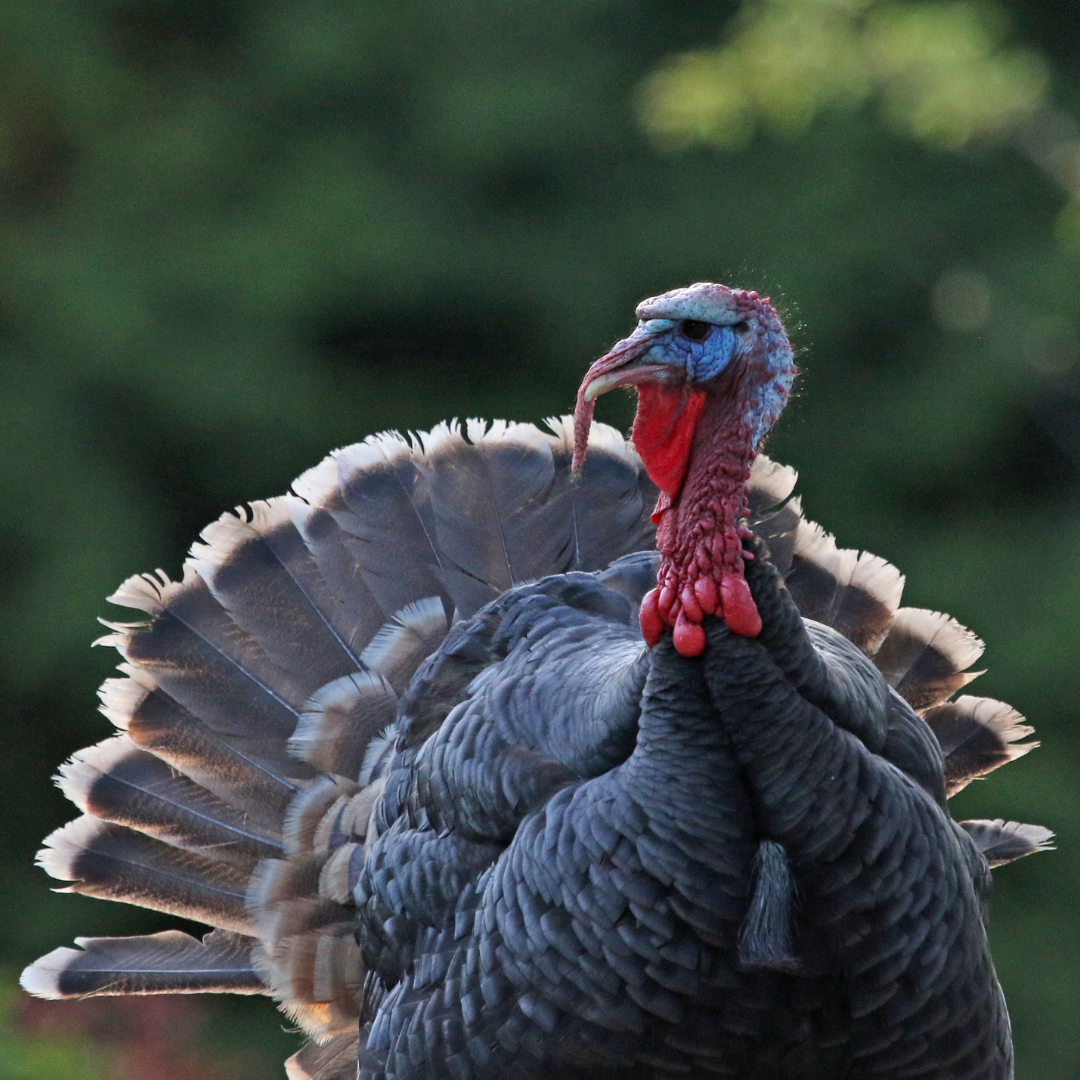To ensure the health of your turkeys, you need to mimic their natural diets as much as possible.
Wild turkeys are found all over most of the United States. Our domestic turkeys are descendants of these wild birds. Although leaner, the wild turkey has a similar diet to that of the domestic turkey. Turkeys, like chickens, are omnivores. Omnivores need a mixed diet of both plant and animal variety. Omnivores are foragers, taking bits here and there as they move through the environment. Wild turkeys can have ranges of up to a mile in diameter that they use to find food. They are seasonal opportunistic feeders. In winter, wild turkeys mainly feed on acorns and other nuts, evergreen needles and buds that are still tender. During warmer months, a large part of their diet consists of berries, bugs, small reptiles, and lots of green grass shoots.

Our domestic turkeys, although most likely fed a diet of pelleted rations, still need that balance and variety of foods.
In order to supplement your turkeys needs, there are several things you can try!
- Make your own DIY feed mix.
Much research has gone into the development of poultry feeds over the years. Most store bought turkey feeds are great as a daily ration. Commercial feeds average around 22% protein and only 3.5 % fat. These feeds are good, and also contain lots of important vitamins and minerals, but still aren’t giving the turkey everything it needs.
In the wild, turkeys consume loads of nuts. Acorns, which are a turkey favorite, are almost pure fat. Turkeys need this fat to grow thicker feathers with more sheen. Sunflower seeds are an excellent source of this good fat turkeys need.
DIY Turkey Feed
50 % base feed
– Commercial feed with average of 28% protein.
Crumbles for poults, pellets for adults
50 % add-ins
-Scratch feed
Can contain 3-12 types of grains, cracked corn, milo, and wheat. Ask your feed store for the prices and types of scratch feed.
-Sunflower Seeds
Additional sunflower seeds add the oils and fat a turkey needs.
– Oats and Barley
Amino acids in these seeds will allow your birds to process their food more easily, leading to less waste and more weight gain.
(Allow all day access to premixed feed, water, and calcium oystershells.)
- Free range your flock.
If at all possible, allowing your turkeys to free range is a free and easy way for them to supplement their diet themselves. In the wild, turkeys move constantly. Rarely do you see them standing still, they are forever on the move, scavenging. Your domestic turkeys instinctively know how to sample anything edible. Most of the substance in a turkey’s diet comes from plant matter. Fresh greens, like new grass shoots or plant buds are their favorite. They also LOVE bugs of any type and will soon sweep the yard clear of any insects in their path. If you are able to let them out, even for an hour a day, they will benefit greatly.
- Scavenge for your birds.
Scavenge in your fridge or scavenge in your backyard, and you’ll be sure to find lots of free food for your turkeys. Like chickens, turkeys will eat most any kind of leftover from your kitchen. While things like citrus fruits, onions, and chocolate don’t make good snacks for poultry, most leftovers are fine!
Turkeys crave protein, and will happily take your leftover cooked meats, and even have been known to gobble up dog and cat food! Meal worms make wonderful treats!
If it isn’t possible to let your turkeys out, you can find some free greens in your yard to bring back to them. Many common, leafy weeds are healthy for turkeys. Things like dandelion greens, purslane, and fresh clover are easy to find. Pull them up by the roots and give the whole plants to your turkeys; they’ll love it! You can also feed them chopped spinach, leafy lettuces, and kale from the supermarket.
It is important to give your turkeys a balanced diet full of variety. Luckily, that can be easily achieved! The healthier the diet, the healthier the bird! Whether you’re raising turkeys for the table, or just to look at, I hope by adding these small changes, your turkeys will grow happy and healthy!